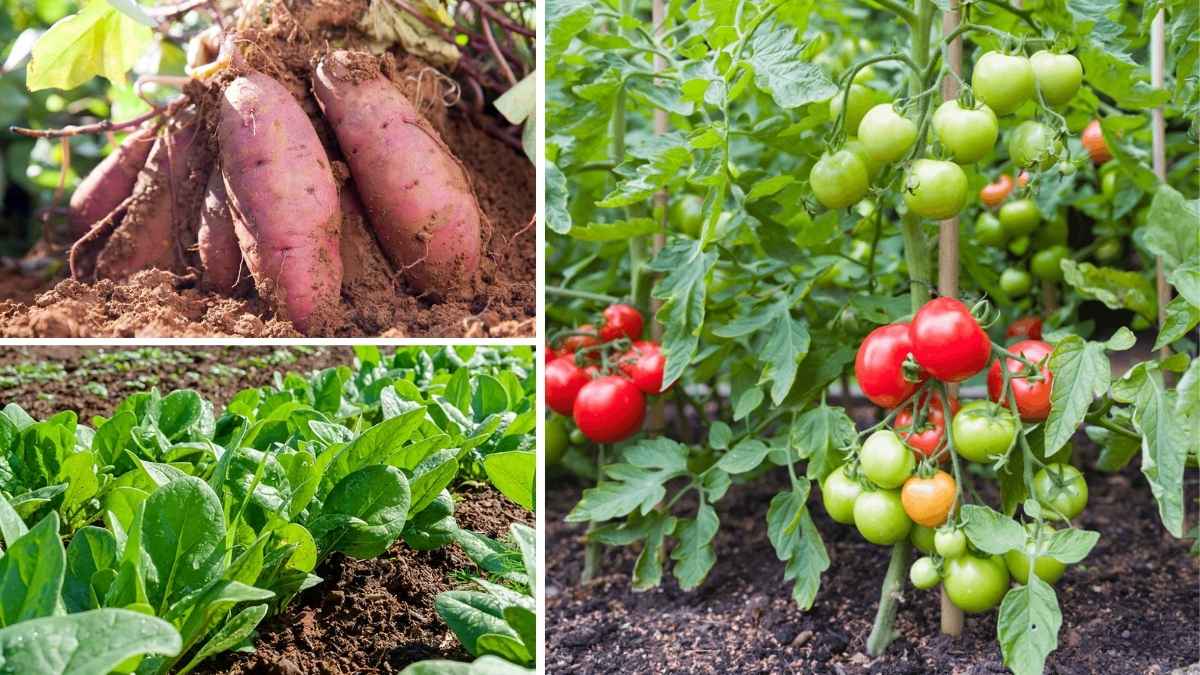Growing your own food is an incredibly rewarding way to enhance your diet, reduce grocery bills, and enjoy fresh, nutrient-packed produce. Even if you don’t have a lot of space or experience in gardening, there are many plants that are simple to grow, and they offer a wealth of health benefits. Whether you’re gardening in a backyard, on a balcony, or even in containers, here are seven easy-to-grow plants that not only thrive with minimal care but also pack a serious nutritional punch.
1. Spinach: A Nutrient-Packed Super Green
Spinach is one of the easiest leafy greens to grow, and it’s loaded with essential nutrients. This fast-growing plant is packed with vitamins and minerals that support everything from bone health to immune function.
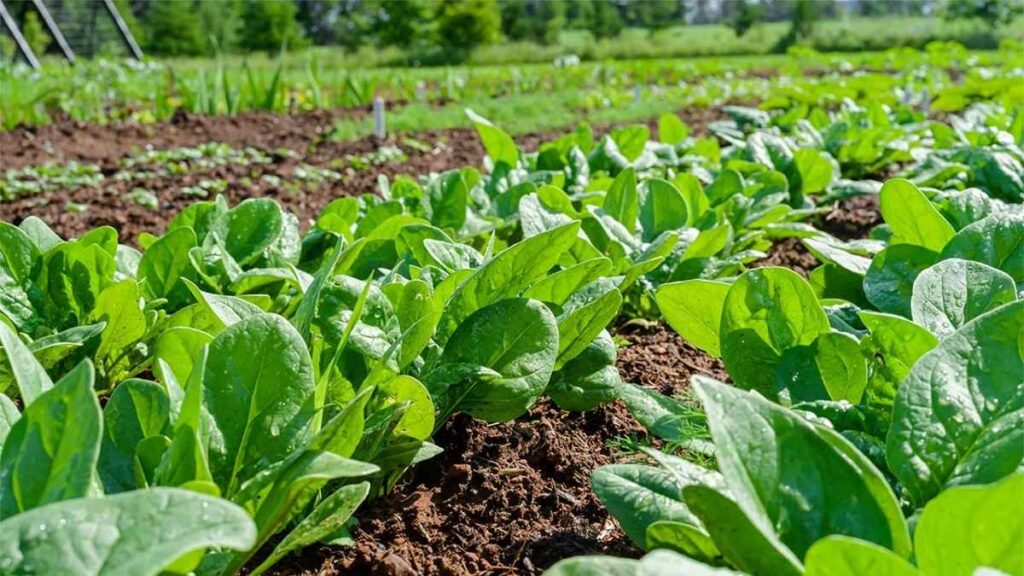
Health Benefits of Spinach:
- High in vitamins A, C, and K, which support vision, immune function, and skin health.
- Rich in iron, helping to prevent anemia and boost energy.
- Packed with antioxidants that fight inflammation and protect against chronic diseases.
- Contains fiber, which promotes digestive health.
Growing Tips:
- Best grown in cooler weather (spring or fall).
- Requires well-drained soil and moderate sunlight.
- Can be grown in containers or garden beds.
2. Kale: The King of Greens
Kale is one of the most nutrient-dense vegetables you can grow. This hearty green is packed with vitamins and antioxidants that offer numerous health benefits. It’s ideal for beginners and can be grown in both cool and warm climates.
Health Benefits of Kale:
- Rich in vitamins A, C, and K, which help with eye health, immunity, and bone health.
- High in calcium and magnesium, important for bone and muscle function.
- Packed with antioxidants like quercetin and kaempferol that reduce inflammation and promote heart health.
- Great source of fiber for digestive health.
Growing Tips:
- Grows well in both raised beds and containers.
- Prefers cooler temperatures but can tolerate some heat.
- Regular watering and well-drained soil are important.
3. Sweet Potatoes: A Nutrient-Dense Root Vegetable
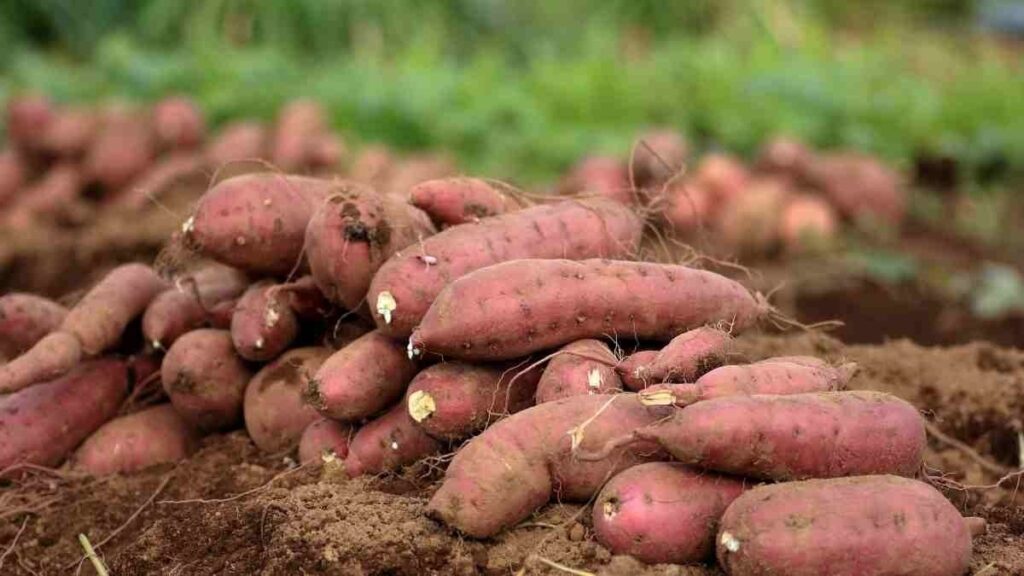
Sweet potatoes are a highly nutritious root vegetable that is rich in vitamins and fiber. They’re relatively easy to grow and offer a host of health benefits, including helping with blood sugar regulation and promoting good vision.
Health Benefits of Sweet Potatoes:
- High in beta-carotene, which the body converts into vitamin A essential for healthy skin and eyes.
- Rich in vitamin C and potassium, which support immune health and regulate blood pressure.
- Good source of fiber that aids digestion and helps keep you full longer.
Growing Tips:
- Best grown in warm climates, with a long growing season (8-10 months).
- Requires loose, well-drained soil to allow the roots to grow properly.
- Can be grown in large containers if space is limited.
4. Fresh Herbs: Small Plants, Big Benefits
Herbs like basil, parsley, cilantro, and mint can easily be grown in small spaces, making them ideal for container gardening or windowsills. Not only do they add flavor to your meals, but they also offer significant nutritional benefits.
Health Benefits of Common Herbs:
- Basil: Rich in vitamin K, which supports bone health.
- Parsley: High in vitamin C, vitamin A, and folate, which promote healthy skin, immunity, and cell function.
- Mint: Known for its digestive properties and ability to relieve nausea.
- Cilantro: Rich in antioxidants that detoxify the body and support immune health.
Growing Tips:
- Most herbs require full sun and well-drained soil.
- Can be grown in small pots or hanging baskets.
- Water regularly but avoid over-watering.
5. Tomatoes: A Juicy Source of Vitamins and Antioxidants
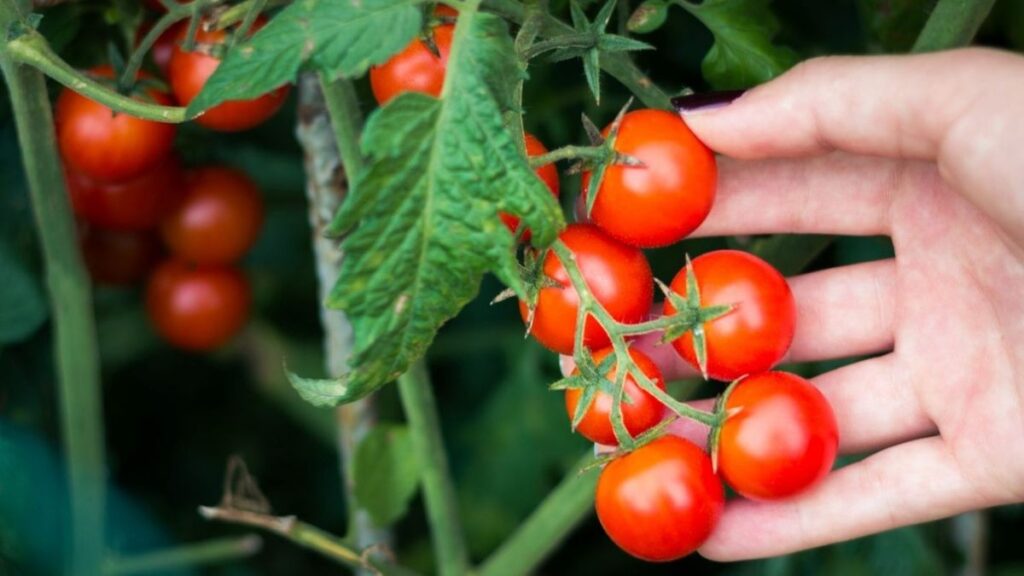
Tomatoes are a staple in many home gardens due to their ease of growth and versatility in the kitchen. Beyond their delicious flavor, tomatoes are loaded with essential vitamins and antioxidants, particularly lycopene, which has numerous health benefits.
Health Benefits of Tomatoes:
- High in vitamin C, which boosts immunity and skin health.
- Excellent source of potassium, which helps regulate blood pressure.
- Rich in lycopene, an antioxidant that has been shown to reduce the risk of heart disease and cancer.
- Contains folate, which supports cell growth and function.
Growing Tips:
- Best grown in warm weather and require full sunlight.
- Can be grown in containers or raised beds.
- Regular watering and occasional pruning of leaves for better fruit production.
6. Carrots: Crunchy and Full of Vitamins

Carrots are easy to grow and make a great addition to any home garden. These root vegetables are known for their bright orange color, which is a sign of their high beta-carotene content. Carrots offer a wide range of health benefits, particularly when it comes to eye health.
Health Benefits of Carrots:
- High in beta-carotene, which is converted into vitamin A to support vision and immune function.
- A great source of fiber, which helps with digestion and weight management.
- Rich in vitamin K, which is vital for bone health.
- Contains antioxidants that support overall cellular health.
Growing Tips:
- Grow best in loose, well-drained soil.
- Need plenty of sunlight and space for the roots to grow.
- Keep the soil moist and avoid overcrowding the seedlings.
7. Peas: A Protein-Rich Legume
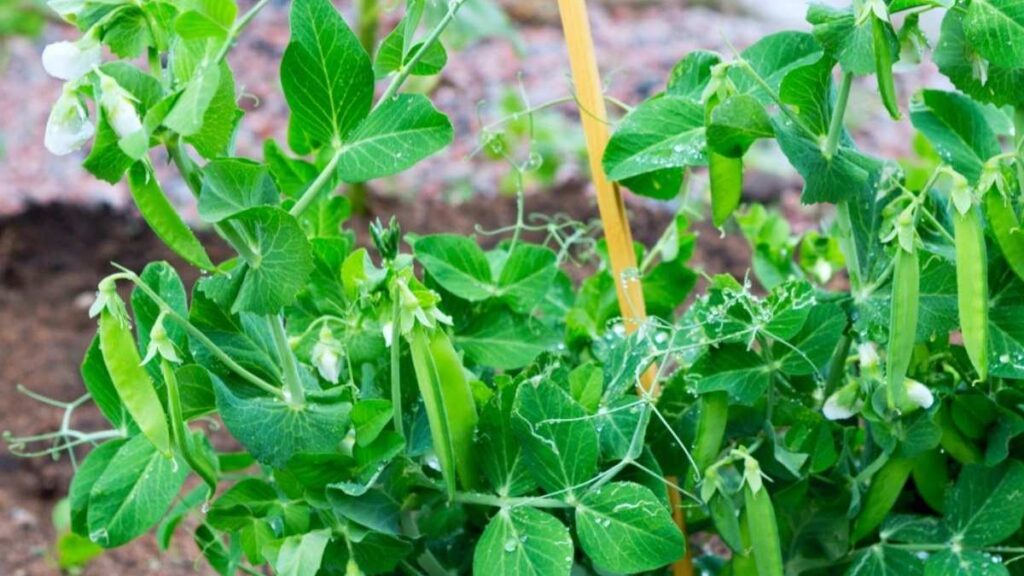
Peas are a fantastic addition to any home garden, especially if you’re looking for a source of plant-based protein. They grow easily and can be planted in early spring or fall. Not only are peas delicious, but they’re also high in nutrients that support heart health and digestion.
Health Benefits of Peas:
- High in plant-based protein, making them an excellent addition to vegetarian and vegan diets.
- Rich in vitamins A, C, and K, which promote healthy vision, immunity, and bone health.
- Packed with fiber to support digestion and keep you feeling full.
- Contains antioxidants that reduce inflammation and support overall health.
Growing Tips:
- Peas prefer cooler temperatures and can be grown in containers or garden beds.
- Plant early in the season for a spring harvest or in the fall for a second crop.
- Provide support for the vines as they grow, either with trellises or stakes.
Conclusion
Gardening doesn’t have to be complicated or time-consuming, and growing your own food offers a host of health benefits. The seven plants listed above are all easy to grow and provide a wealth of nutrients that can help support your overall health. Whether you’re growing leafy greens like spinach and kale, root vegetables like carrots and sweet potatoes, or fresh herbs and tomatoes, you’re ensuring that your meals are packed with essential vitamins, minerals, and antioxidants.
By adding these easy-to-grow plants to your garden, you’ll not only enjoy the satisfaction of growing your own food, but you’ll also be eating fresh, nutritious produce that can boost your health. So, why not start your garden today? With just a little space and some basic gardening knowledge, you can begin enjoying the many benefits of homegrown nutrition. Happy gardening!

